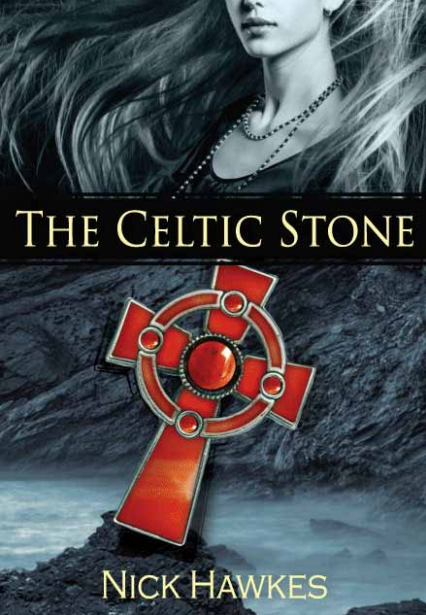Christian fiction has come under fire in recent months: too many books feature simplistic, idealised outcomes that in no way reflect the harsh realities of life. It can give Christians unrealistic expectations of what they feel they have a right to in this life. If you have been hurt by such writing, I’m sorry. It is bad theology and bad writing.

One of Nick Hawkes books – The Celtic Stone.
Quite where Western Christianity ever got the idea that we could live faithfully on this planet without suffering is a mystery. It is certainly not an idea found in the New Testament. New Testament Christians believed it a privilege to be persecuted, as they were sharing in the sufferings of Christ.
I’m happy to say, however, that the realities of life’s suffering do not require us to dispense with happy endings in our books or, indeed, apologise for them.
We love happy endings. There is something in the human psyche that delights in good triumphing over the worst expressions of evil. Rather than deny this love, we should celebrate it. I say this because every story with a happy ending is, I believe, a reflection of His story, the gospel story.
J.R.R. Tolkien is to blame for this idea. He taught C.S. Lewis that all stories told by humankind, from fairy stories to sagas, had the same theme of loss, sacrifice and rescue. He said this was the case because all stories are variants of the one great story, the gospel story, which humankind is both spiritually and psychologically tuned to apprehend.
This idea was picked up by anthropologist Joseph Campbell in his book The Hero With a Thousand Faces. He coined the term “monomyth” to refer to the universal essence of every story.
So, enjoy a happy ending—you might just be reflecting the essence of the gospel by doing so.
This, of course, is no excuse for writing facile, saccharin-overloaded, simplistic nonsense. Proper stories identify fully with the harsh realities of the human condition. They engage with the messiness of life in all its manifestations. They don’t paper over anything, yet the best also manage to bring hope.
The gospel informs both what I write and why I write. I’ve just written three novels for the Stone series. They have been written deliberately for non-Christians. Each novel charts a journey from brokenness to wholeness, dealing with the toughest issues people wrestle with each day: shame, grief, and loss. And within each story the gospel threads its way in and out like a shy visitor, whispering the possibility of faith.
The gospel also informs how I write.Our God is behind the drama of a billion galaxies spinning in space, the subtleties of music and the beauty of a sunset. It is tragic to see people going through life without noticing how amazing the world is. Good writers notice things and paint their observations well. And they allow readers to look over their shoulder, smile and say, “Ah, yes. I see it now”.
A book should also be a journey of discovery; compelling the reader to find things out. What was the violent history of the storm-wracked islands of the Hebrides? What secrets are there to be found within a medieval cathedral? Good writing should delight the mind as well as the heart.
God’s love particularly informs the way I write. Love, we are told, was the motive behind God creating the universe. It is little wonder, then, that love forms the basis of all novels. The task of any novelist is to feature it in a way that explores its richness and its messiness, and to do so honestly.
Christian novels aren’t bad. Only bad Christian novels are bad. The trick is to be discerning. Novels can be good for you. The best of them stay with us for life, and call us to be more than we are.
Email This Story
Why not send this to a friend?
